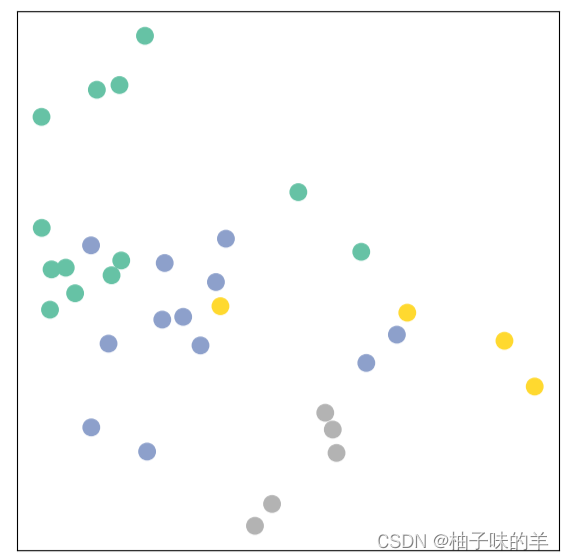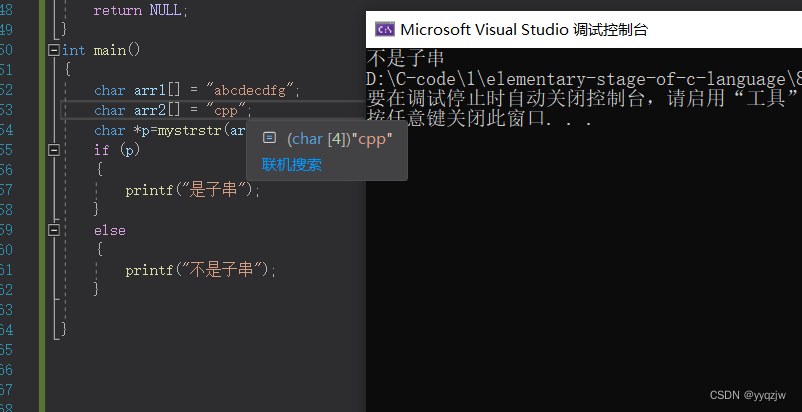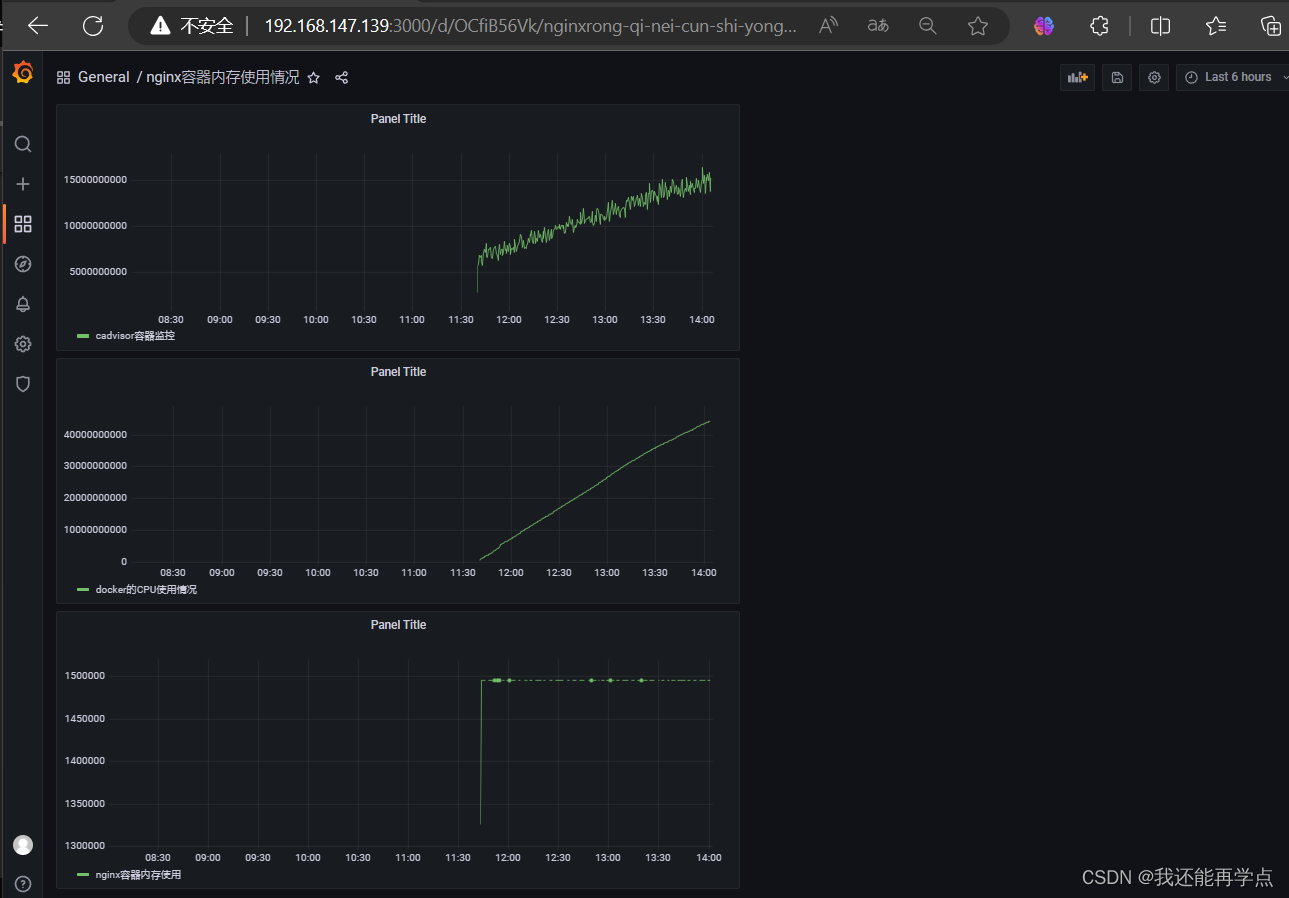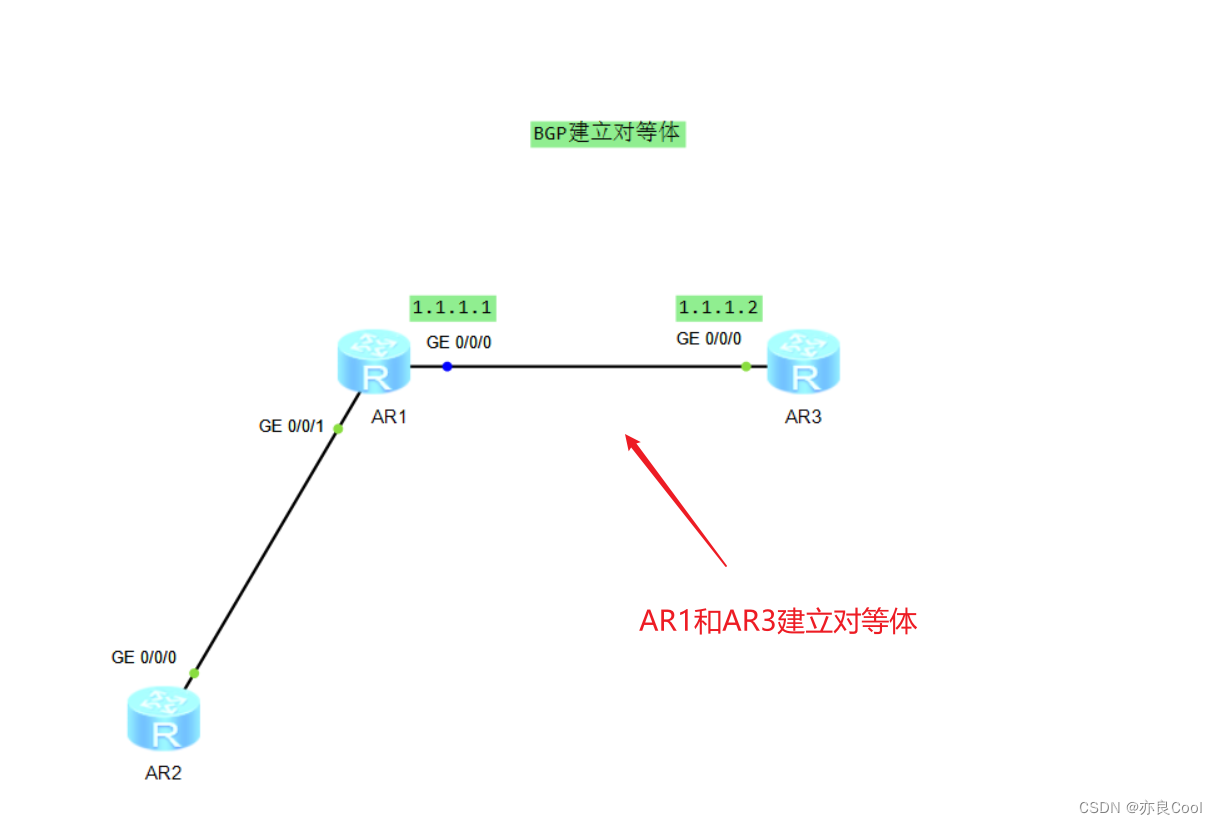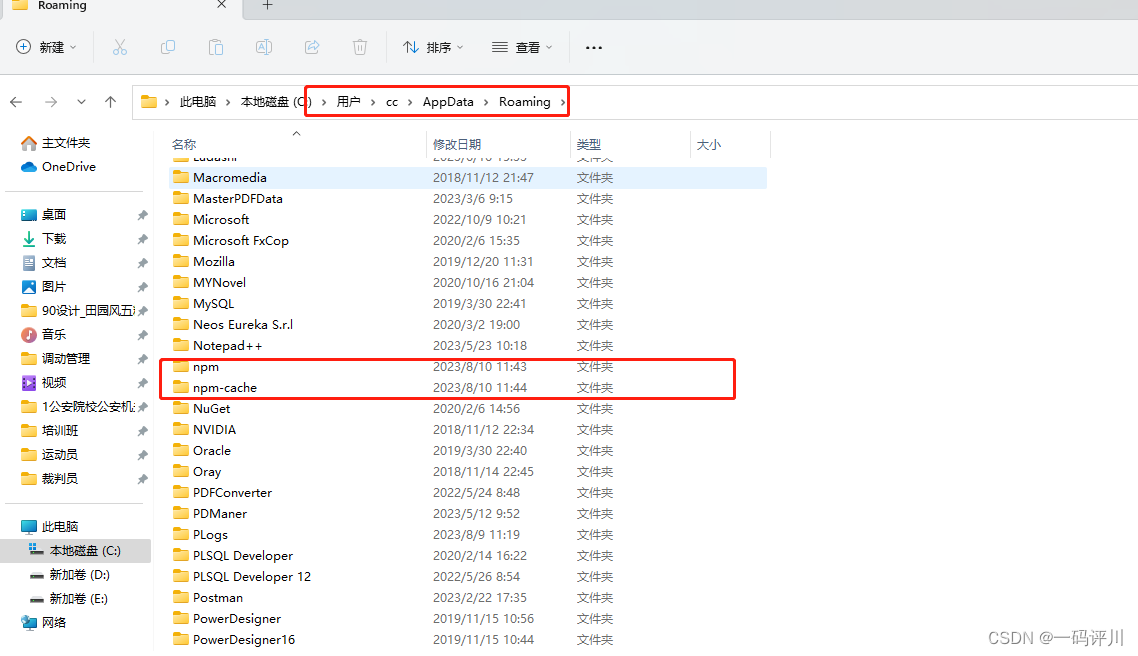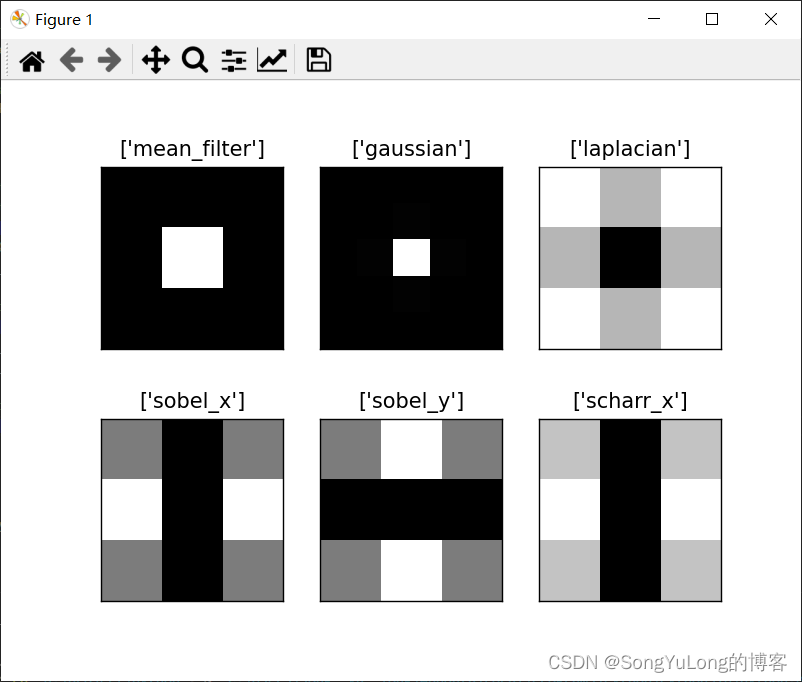本地跑MapReduce程序需要配置的代码
为了在本地运行MapReduce程序,需要加如下的东西
在项目中创建一个如图所示的包:org.apache.hadoop.io.nativeio,并在该包下面创建一个名为:NativeIO的类(注意:名字不能写错),在该类中加入如下的代码:

/*** Licensed to the Apache Software Foundation (ASF) under one* or more contributor license agreements. See the NOTICE file* distributed with this work for additional information* regarding copyright ownership. The ASF licenses this file* to you under the Apache License, Version 2.0 (the* "License"); you may not use this file except in compliance* with the License. You may obtain a copy of the License at** http://www.apache.org/licenses/LICENSE-2.0** Unless required by applicable law or agreed to in writing, software* distributed under the License is distributed on an "AS IS" BASIS,* WITHOUT WARRANTIES OR CONDITIONS OF ANY KIND, either express or implied.* See the License for the specific language governing permissions and* limitations under the License.*/
package org.apache.hadoop.io.nativeio;import com.google.common.annotations.VisibleForTesting;
import org.apache.commons.logging.Log;
import org.apache.commons.logging.LogFactory;
import org.apache.hadoop.classification.InterfaceAudience;
import org.apache.hadoop.classification.InterfaceStability;
import org.apache.hadoop.conf.Configuration;
import org.apache.hadoop.fs.CommonConfigurationKeys;
import org.apache.hadoop.fs.HardLink;
import org.apache.hadoop.io.IOUtils;
import org.apache.hadoop.io.SecureIOUtils.AlreadyExistsException;
import org.apache.hadoop.util.NativeCodeLoader;
import org.apache.hadoop.util.PerformanceAdvisory;
import org.apache.hadoop.util.Shell;
import sun.misc.Unsafe;import java.io.*;
import java.lang.reflect.Field;
import java.nio.ByteBuffer;
import java.nio.MappedByteBuffer;
import java.nio.channels.FileChannel;
import java.util.Map;
import java.util.concurrent.ConcurrentHashMap;/*** JNI wrappers for various native IO-related calls not available in Java. These* functions should generally be used alongside a fallback to another more* portable mechanism.*/
@InterfaceAudience.Private
@InterfaceStability.Unstable
public class NativeIO {public static class POSIX {// Flags for open() call from bits/fcntl.hpublic static final int O_RDONLY = 00;public static final int O_WRONLY = 01;public static final int O_RDWR = 02;public static final int O_CREAT = 0100;public static final int O_EXCL = 0200;public static final int O_NOCTTY = 0400;public static final int O_TRUNC = 01000;public static final int O_APPEND = 02000;public static final int O_NONBLOCK = 04000;public static final int O_SYNC = 010000;public static final int O_ASYNC = 020000;public static final int O_FSYNC = O_SYNC;public static final int O_NDELAY = O_NONBLOCK;// Flags for posix_fadvise() from bits/fcntl.h/* No further special treatment. */public static final int POSIX_FADV_NORMAL = 0;/* Expect random page references. */public static final int POSIX_FADV_RANDOM = 1;/* Expect sequential page references. */public static final int POSIX_FADV_SEQUENTIAL = 2;/* Will need these pages. */public static final int POSIX_FADV_WILLNEED = 3;/* Don't need these pages. */public static final int POSIX_FADV_DONTNEED = 4;/* Data will be accessed once. */public static final int POSIX_FADV_NOREUSE = 5;/** Wait upon writeout of all pages in the range before performing the write.*/public static final int SYNC_FILE_RANGE_WAIT_BEFORE = 1;/** Initiate writeout of all those dirty pages in the range which are not* presently under writeback.*/public static final int SYNC_FILE_RANGE_WRITE = 2;/** Wait upon writeout of all pages in the range after performing the write.*/public static final int SYNC_FILE_RANGE_WAIT_AFTER = 4;private static final Log LOG = LogFactory.getLog(NativeIO.class);private static boolean nativeLoaded = false;private static boolean fadvisePossible = true;private static boolean syncFileRangePossible = true;static final String WORKAROUND_NON_THREADSAFE_CALLS_KEY = "hadoop.workaround.non.threadsafe.getpwuid";static final boolean WORKAROUND_NON_THREADSAFE_CALLS_DEFAULT = true;private static long cacheTimeout = -1;private static CacheManipulator cacheManipulator = new CacheManipulator();public static CacheManipulator getCacheManipulator() {return cacheManipulator;}public static void setCacheManipulator(CacheManipulator cacheManipulator) {POSIX.cacheManipulator = cacheManipulator;}/*** Used to manipulate the operating system cache.*/@VisibleForTestingpublic static class CacheManipulator {public void mlock(String identifier, ByteBuffer buffer, long len) throws IOException {POSIX.mlock(buffer, len);}public long getMemlockLimit() {return NativeIO.getMemlockLimit();}public long getOperatingSystemPageSize() {return NativeIO.getOperatingSystemPageSize();}public void posixFadviseIfPossible(String identifier, FileDescriptor fd, long offset, long len, int flags)throws NativeIOException {NativeIO.POSIX.posixFadviseIfPossible(identifier, fd, offset, len, flags);}public boolean verifyCanMlock() {return NativeIO.isAvailable();}}/*** A CacheManipulator used for testing which does not actually call mlock. This* allows many tests to be run even when the operating system does not allow* mlock, or only allows limited mlocking.*/@VisibleForTestingpublic static class NoMlockCacheManipulator extends CacheManipulator {public void mlock(String identifier, ByteBuffer buffer, long len) throws IOException {LOG.info("mlocking " + identifier);}public long getMemlockLimit() {return 1125899906842624L;}public long getOperatingSystemPageSize() {return 4096;}public boolean verifyCanMlock() {return true;}}static {if (NativeCodeLoader.isNativeCodeLoaded()) {try {Configuration conf = new Configuration();workaroundNonThreadSafePasswdCalls = conf.getBoolean(WORKAROUND_NON_THREADSAFE_CALLS_KEY,WORKAROUND_NON_THREADSAFE_CALLS_DEFAULT);initNative();nativeLoaded = true;cacheTimeout = conf.getLong(CommonConfigurationKeys.HADOOP_SECURITY_UID_NAME_CACHE_TIMEOUT_KEY,CommonConfigurationKeys.HADOOP_SECURITY_UID_NAME_CACHE_TIMEOUT_DEFAULT) * 1000;LOG.debug("Initialized cache for IDs to User/Group mapping with a " + " cache timeout of "+ cacheTimeout / 1000 + " seconds.");} catch (Throwable t) {// This can happen if the user has an older version of libhadoop.so// installed - in this case we can continue without native IO// after warningPerformanceAdvisory.LOG.debug("Unable to initialize NativeIO libraries", t);}}}/*** Return true if the JNI-based native IO extensions are available.*/public static boolean isAvailable() {return NativeCodeLoader.isNativeCodeLoaded() && nativeLoaded;}private static void assertCodeLoaded() throws IOException {if (!isAvailable()) {throw new IOException("NativeIO was not loaded");}}/** Wrapper around open(2) */public static native FileDescriptor open(String path, int flags, int mode) throws IOException;/** Wrapper around fstat(2) */private static native Stat fstat(FileDescriptor fd) throws IOException;/** Native chmod implementation. On UNIX, it is a wrapper around chmod(2) */private static native void chmodImpl(String path, int mode) throws IOException;public static void chmod(String path, int mode) throws IOException {if (!Shell.WINDOWS) {chmodImpl(path, mode);} else {try {chmodImpl(path, mode);} catch (NativeIOException nioe) {if (nioe.getErrorCode() == 3) {throw new NativeIOException("No such file or directory", Errno.ENOENT);} else {LOG.warn(String.format("NativeIO.chmod error (%d): %s", nioe.getErrorCode(), nioe.getMessage()));throw new NativeIOException("Unknown error", Errno.UNKNOWN);}}}}/** Wrapper around posix_fadvise(2) */static native void posix_fadvise(FileDescriptor fd, long offset, long len, int flags) throws NativeIOException;/** Wrapper around sync_file_range(2) */static native void sync_file_range(FileDescriptor fd, long offset, long nbytes, int flags)throws NativeIOException;/*** Call posix_fadvise on the given file descriptor. See the manpage for this* syscall for more information. On systems where this call is not available,* does nothing.** @throws NativeIOException* if there is an error with the syscall*/static void posixFadviseIfPossible(String identifier, FileDescriptor fd, long offset, long len, int flags)throws NativeIOException {if (nativeLoaded && fadvisePossible) {try {posix_fadvise(fd, offset, len, flags);} catch (UnsupportedOperationException uoe) {fadvisePossible = false;} catch (UnsatisfiedLinkError ule) {fadvisePossible = false;}}}/*** Call sync_file_range on the given file descriptor. See the manpage for this* syscall for more information. On systems where this call is not available,* does nothing.** @throws NativeIOException* if there is an error with the syscall*/public static void syncFileRangeIfPossible(FileDescriptor fd, long offset, long nbytes, int flags)throws NativeIOException {if (nativeLoaded && syncFileRangePossible) {try {sync_file_range(fd, offset, nbytes, flags);} catch (UnsupportedOperationException uoe) {syncFileRangePossible = false;} catch (UnsatisfiedLinkError ule) {syncFileRangePossible = false;}}}static native void mlock_native(ByteBuffer buffer, long len) throws NativeIOException;/*** Locks the provided direct ByteBuffer into memory, preventing it from swapping* out. After a buffer is locked, future accesses will not incur a page fault.** See the mlock(2) man page for more information.** @throws NativeIOException*/static void mlock(ByteBuffer buffer, long len) throws IOException {assertCodeLoaded();if (!buffer.isDirect()) {throw new IOException("Cannot mlock a non-direct ByteBuffer");}mlock_native(buffer, len);}/*** Unmaps the block from memory. See munmap(2).** There isn't any portable way to unmap a memory region in Java. So we use the* sun.nio method here. Note that unmapping a memory region could cause crashes* if code continues to reference the unmapped code. However, if we don't* manually unmap the memory, we are dependent on the finalizer to do it, and we* have no idea when the finalizer will run.** @param buffer* The buffer to unmap.*/public static void munmap(MappedByteBuffer buffer) {if (buffer instanceof sun.nio.ch.DirectBuffer) {sun.misc.Cleaner cleaner = ((sun.nio.ch.DirectBuffer) buffer).cleaner();cleaner.clean();}}/** Linux only methods used for getOwner() implementation */private static native long getUIDforFDOwnerforOwner(FileDescriptor fd) throws IOException;private static native String getUserName(long uid) throws IOException;/*** Result type of the fstat call*/public static class Stat {private int ownerId, groupId;private String owner, group;private int mode;// Mode constantspublic static final int S_IFMT = 0170000; /* type of file */public static final int S_IFIFO = 0010000; /* named pipe (fifo) */public static final int S_IFCHR = 0020000; /* character special */public static final int S_IFDIR = 0040000; /* directory */public static final int S_IFBLK = 0060000; /* block special */public static final int S_IFREG = 0100000; /* regular */public static final int S_IFLNK = 0120000; /* symbolic link */public static final int S_IFSOCK = 0140000; /* socket */public static final int S_IFWHT = 0160000; /* whiteout */public static final int S_ISUID = 0004000; /* set user id on execution */public static final int S_ISGID = 0002000; /* set group id on execution */public static final int S_ISVTX = 0001000; /* save swapped text even after use */public static final int S_IRUSR = 0000400; /* read permission, owner */public static final int S_IWUSR = 0000200; /* write permission, owner */public static final int S_IXUSR = 0000100; /* execute/search permission, owner */Stat(int ownerId, int groupId, int mode) {this.ownerId = ownerId;this.groupId = groupId;this.mode = mode;}Stat(String owner, String group, int mode) {if (!Shell.WINDOWS) {this.owner = owner;} else {this.owner = stripDomain(owner);}if (!Shell.WINDOWS) {this.group = group;} else {this.group = stripDomain(group);}this.mode = mode;}@Overridepublic String toString() {return "Stat(owner='" + owner + "', group='" + group + "'" + ", mode=" + mode + ")";}public String getOwner() {return owner;}public String getGroup() {return group;}public int getMode() {return mode;}}/*** Returns the file stat for a file descriptor.** @param fd* file descriptor.* @return the file descriptor file stat.* @throws IOException* thrown if there was an IO error while obtaining the file stat.*/public static Stat getFstat(FileDescriptor fd) throws IOException {Stat stat = null;if (!Shell.WINDOWS) {stat = fstat(fd);stat.owner = getName(IdCache.USER, stat.ownerId);stat.group = getName(IdCache.GROUP, stat.groupId);} else {try {stat = fstat(fd);} catch (NativeIOException nioe) {if (nioe.getErrorCode() == 6) {throw new NativeIOException("The handle is invalid.", Errno.EBADF);} else {LOG.warn(String.format("NativeIO.getFstat error (%d): %s", nioe.getErrorCode(),nioe.getMessage()));throw new NativeIOException("Unknown error", Errno.UNKNOWN);}}}return stat;}private static String getName(IdCache domain, int id) throws IOException {Map<Integer, CachedName> idNameCache = (domain == IdCache.USER) ? USER_ID_NAME_CACHE : GROUP_ID_NAME_CACHE;String name;CachedName cachedName = idNameCache.get(id);long now = System.currentTimeMillis();if (cachedName != null && (cachedName.timestamp + cacheTimeout) > now) {name = cachedName.name;} else {name = (domain == IdCache.USER) ? getUserName(id) : getGroupName(id);if (LOG.isDebugEnabled()) {String type = (domain == IdCache.USER) ? "UserName" : "GroupName";LOG.debug("Got " + type + " " + name + " for ID " + id + " from the native implementation");}cachedName = new CachedName(name, now);idNameCache.put(id, cachedName);}return name;}static native String getUserName(int uid) throws IOException;static native String getGroupName(int uid) throws IOException;private static class CachedName {final long timestamp;final String name;public CachedName(String name, long timestamp) {this.name = name;this.timestamp = timestamp;}}private static final Map<Integer, CachedName> USER_ID_NAME_CACHE = new ConcurrentHashMap<Integer, CachedName>();private static final Map<Integer, CachedName> GROUP_ID_NAME_CACHE = new ConcurrentHashMap<Integer, CachedName>();private enum IdCache {USER, GROUP}public final static int MMAP_PROT_READ = 0x1;public final static int MMAP_PROT_WRITE = 0x2;public final static int MMAP_PROT_EXEC = 0x4;public static native long mmap(FileDescriptor fd, int prot, boolean shared, long length) throws IOException;public static native void munmap(long addr, long length) throws IOException;}private static boolean workaroundNonThreadSafePasswdCalls = false;public static class Windows {// Flags for CreateFile() call on Windowspublic static final long GENERIC_READ = 0x80000000L;public static final long GENERIC_WRITE = 0x40000000L;public static final long FILE_SHARE_READ = 0x00000001L;public static final long FILE_SHARE_WRITE = 0x00000002L;public static final long FILE_SHARE_DELETE = 0x00000004L;public static final long CREATE_NEW = 1;public static final long CREATE_ALWAYS = 2;public static final long OPEN_EXISTING = 3;public static final long OPEN_ALWAYS = 4;public static final long TRUNCATE_EXISTING = 5;public static final long FILE_BEGIN = 0;public static final long FILE_CURRENT = 1;public static final long FILE_END = 2;public static final long FILE_ATTRIBUTE_NORMAL = 0x00000080L;/*** Create a directory with permissions set to the specified mode. By setting* permissions at creation time, we avoid issues related to the user lacking* WRITE_DAC rights on subsequent chmod calls. One example where this can occur* is writing to an SMB share where the user does not have Full Control rights,* and therefore WRITE_DAC is denied.** @param path* directory to create* @param mode* permissions of new directory* @throws IOException* if there is an I/O error*/public static void createDirectoryWithMode(File path, int mode) throws IOException {createDirectoryWithMode0(path.getAbsolutePath(), mode);}/** Wrapper around CreateDirectory() on Windows */private static native void createDirectoryWithMode0(String path, int mode) throws NativeIOException;/** Wrapper around CreateFile() on Windows */public static native FileDescriptor createFile(String path, long desiredAccess, long shareMode,long creationDisposition) throws IOException;/*** Create a file for write with permissions set to the specified mode. By* setting permissions at creation time, we avoid issues related to the user* lacking WRITE_DAC rights on subsequent chmod calls. One example where this* can occur is writing to an SMB share where the user does not have Full* Control rights, and therefore WRITE_DAC is denied.** This method mimics the semantics implemented by the JDK in* {@link FileOutputStream}. The file is opened for truncate or append,* the sharing mode allows other readers and writers, and paths longer than* MAX_PATH are supported. (See io_util_md.c in the JDK.)** @param path* file to create* @param append* if true, then open file for append* @param mode* permissions of new directory* @return FileOutputStream of opened file* @throws IOException* if there is an I/O error*/public static FileOutputStream createFileOutputStreamWithMode(File path, boolean append, int mode)throws IOException {long desiredAccess = GENERIC_WRITE;long shareMode = FILE_SHARE_READ | FILE_SHARE_WRITE;long creationDisposition = append ? OPEN_ALWAYS : CREATE_ALWAYS;return new FileOutputStream(createFileWithMode0(path.getAbsolutePath(), desiredAccess, shareMode, creationDisposition, mode));}/** Wrapper around CreateFile() with security descriptor on Windows */private static native FileDescriptor createFileWithMode0(String path, long desiredAccess, long shareMode,long creationDisposition, int mode) throws NativeIOException;/** Wrapper around SetFilePointer() on Windows */public static native long setFilePointer(FileDescriptor fd, long distanceToMove, long moveMethod)throws IOException;/** Windows only methods used for getOwner() implementation */private static native String getOwner(FileDescriptor fd) throws IOException;/** Supported list of Windows access right flags */public static enum AccessRight {ACCESS_READ(0x0001), // FILE_READ_DATAACCESS_WRITE(0x0002), // FILE_WRITE_DATAACCESS_EXECUTE(0x0020); // FILE_EXECUTEprivate final int accessRight;AccessRight(int access) {accessRight = access;}public int accessRight() {return accessRight;}};/*** Windows only method used to check if the current process has requested access* rights on the given path.*/private static native boolean access0(String path, int requestedAccess);/*** Checks whether the current process has desired access rights on the given* path.** Longer term this native function can be substituted with JDK7 function* Files#isReadable, isWritable, isExecutable.** @param path* input path* @param desiredAccess* ACCESS_READ, ACCESS_WRITE or ACCESS_EXECUTE* @return true if access is allowed* @throws IOException* I/O exception on error*/public static boolean access(String path, AccessRight desiredAccess) throws IOException {return true;// return access0(path, desiredAccess.accessRight());}/*** Extends both the minimum and maximum working set size of the current process.* This method gets the current minimum and maximum working set size, adds the* requested amount to each and then sets the minimum and maximum working set* size to the new values. Controlling the working set size of the process also* controls the amount of memory it can lock.** @param delta* amount to increment minimum and maximum working set size* @throws IOException* for any error* @see POSIX#mlock(ByteBuffer, long)*/public static native void extendWorkingSetSize(long delta) throws IOException;static {if (NativeCodeLoader.isNativeCodeLoaded()) {try {initNative();nativeLoaded = true;} catch (Throwable t) {// This can happen if the user has an older version of libhadoop.so// installed - in this case we can continue without native IO// after warningPerformanceAdvisory.LOG.debug("Unable to initialize NativeIO libraries", t);}}}}private static final Log LOG = LogFactory.getLog(NativeIO.class);private static boolean nativeLoaded = false;static {if (NativeCodeLoader.isNativeCodeLoaded()) {try {initNative();nativeLoaded = true;} catch (Throwable t) {// This can happen if the user has an older version of libhadoop.so// installed - in this case we can continue without native IO// after warningPerformanceAdvisory.LOG.debug("Unable to initialize NativeIO libraries", t);}}}/*** Return true if the JNI-based native IO extensions are available.*/public static boolean isAvailable() {return NativeCodeLoader.isNativeCodeLoaded() && nativeLoaded;}/** Initialize the JNI method ID and class ID cache */private static native void initNative();/*** Get the maximum number of bytes that can be locked into memory at any given* point.** @return 0 if no bytes can be locked into memory; Long.MAX_VALUE if there is* no limit; The number of bytes that can be locked into memory* otherwise.*/static long getMemlockLimit() {return isAvailable() ? getMemlockLimit0() : 0;}private static native long getMemlockLimit0();/*** @return the operating system's page size.*/static long getOperatingSystemPageSize() {try {Field f = Unsafe.class.getDeclaredField("theUnsafe");f.setAccessible(true);Unsafe unsafe = (Unsafe) f.get(null);return unsafe.pageSize();} catch (Throwable e) {LOG.warn("Unable to get operating system page size. Guessing 4096.", e);return 4096;}}private static class CachedUid {final long timestamp;final String username;public CachedUid(String username, long timestamp) {this.timestamp = timestamp;this.username = username;}}private static final Map<Long, CachedUid> uidCache = new ConcurrentHashMap<Long, CachedUid>();private static long cacheTimeout;private static boolean initialized = false;/*** The Windows logon name has two part, NetBIOS domain name and user account* name, of the format DOMAIN\UserName. This method will remove the domain part* of the full logon name.** @param Fthe* full principal name containing the domain* @return name with domain removed*/private static String stripDomain(String name) {int i = name.indexOf('\\');if (i != -1)name = name.substring(i + 1);return name;}public static String getOwner(FileDescriptor fd) throws IOException {ensureInitialized();if (Shell.WINDOWS) {String owner = Windows.getOwner(fd);owner = stripDomain(owner);return owner;} else {long uid = POSIX.getUIDforFDOwnerforOwner(fd);CachedUid cUid = uidCache.get(uid);long now = System.currentTimeMillis();if (cUid != null && (cUid.timestamp + cacheTimeout) > now) {return cUid.username;}String user = POSIX.getUserName(uid);LOG.info("Got UserName " + user + " for UID " + uid + " from the native implementation");cUid = new CachedUid(user, now);uidCache.put(uid, cUid);return user;}}/*** Create a FileInputStream that shares delete permission on the file opened,* i.e. other process can delete the file the FileInputStream is reading. Only* Windows implementation uses the native interface.*/public static FileInputStream getShareDeleteFileInputStream(File f) throws IOException {if (!Shell.WINDOWS) {// On Linux the default FileInputStream shares delete permission// on the file opened.//return new FileInputStream(f);} else {// Use Windows native interface to create a FileInputStream that// shares delete permission on the file opened.//FileDescriptor fd = Windows.createFile(f.getAbsolutePath(), Windows.GENERIC_READ,Windows.FILE_SHARE_READ | Windows.FILE_SHARE_WRITE | Windows.FILE_SHARE_DELETE,Windows.OPEN_EXISTING);return new FileInputStream(fd);}}/*** Create a FileInputStream that shares delete permission on the file opened at* a given offset, i.e. other process can delete the file the FileInputStream is* reading. Only Windows implementation uses the native interface.*/public static FileInputStream getShareDeleteFileInputStream(File f, long seekOffset) throws IOException {if (!Shell.WINDOWS) {RandomAccessFile rf = new RandomAccessFile(f, "r");if (seekOffset > 0) {rf.seek(seekOffset);}return new FileInputStream(rf.getFD());} else {// Use Windows native interface to create a FileInputStream that// shares delete permission on the file opened, and set it to the// given offset.//FileDescriptor fd = NativeIO.Windows.createFile(f.getAbsolutePath(), NativeIO.Windows.GENERIC_READ, NativeIO.Windows.FILE_SHARE_READ| NativeIO.Windows.FILE_SHARE_WRITE | NativeIO.Windows.FILE_SHARE_DELETE,NativeIO.Windows.OPEN_EXISTING);if (seekOffset > 0)NativeIO.Windows.setFilePointer(fd, seekOffset, NativeIO.Windows.FILE_BEGIN);return new FileInputStream(fd);}}/*** Create the specified File for write access, ensuring that it does not exist.** @param f* the file that we want to create* @param permissions* we want to have on the file (if security is enabled)** @throws AlreadyExistsException* if the file already exists* @throws IOException* if any other error occurred*/public static FileOutputStream getCreateForWriteFileOutputStream(File f, int permissions) throws IOException {if (!Shell.WINDOWS) {// Use the native wrapper around open(2)try {FileDescriptor fd = NativeIO.POSIX.open(f.getAbsolutePath(),NativeIO.POSIX.O_WRONLY | NativeIO.POSIX.O_CREAT | NativeIO.POSIX.O_EXCL, permissions);return new FileOutputStream(fd);} catch (NativeIOException nioe) {if (nioe.getErrno() == Errno.EEXIST) {throw new AlreadyExistsException(nioe);}throw nioe;}} else {// Use the Windows native APIs to create equivalent FileOutputStreamtry {FileDescriptor fd = NativeIO.Windows.createFile(f.getCanonicalPath(), NativeIO.Windows.GENERIC_WRITE, NativeIO.Windows.FILE_SHARE_DELETE| NativeIO.Windows.FILE_SHARE_READ | NativeIO.Windows.FILE_SHARE_WRITE,NativeIO.Windows.CREATE_NEW);NativeIO.POSIX.chmod(f.getCanonicalPath(), permissions);return new FileOutputStream(fd);} catch (NativeIOException nioe) {if (nioe.getErrorCode() == 80) {// ERROR_FILE_EXISTS// 80 (0x50)// The file existsthrow new AlreadyExistsException(nioe);}throw nioe;}}}private synchronized static void ensureInitialized() {if (!initialized) {cacheTimeout = new Configuration().getLong("hadoop.security.uid.cache.secs", 4 * 60 * 60) * 1000;LOG.info("Initialized cache for UID to User mapping with a cache" + " timeout of " + cacheTimeout / 1000+ " seconds.");initialized = true;}}/*** A version of renameTo that throws a descriptive exception when it fails.** @param src* The source path* @param dst* The destination path** @throws NativeIOException* On failure.*/public static void renameTo(File src, File dst) throws IOException {if (!nativeLoaded) {if (!src.renameTo(dst)) {throw new IOException("renameTo(src=" + src + ", dst=" + dst + ") failed.");}} else {renameTo0(src.getAbsolutePath(), dst.getAbsolutePath());}}public static void link(File src, File dst) throws IOException {if (!nativeLoaded) {HardLink.createHardLink(src, dst);} else {link0(src.getAbsolutePath(), dst.getAbsolutePath());}}/*** A version of renameTo that throws a descriptive exception when it fails.** @param src* The source path* @param dst* The destination path** @throws NativeIOException* On failure.*/private static native void renameTo0(String src, String dst) throws NativeIOException;private static native void link0(String src, String dst) throws NativeIOException;/*** Unbuffered file copy from src to dst without tainting OS buffer cache** In POSIX platform: It uses FileChannel#transferTo() which internally attempts* unbuffered IO on OS with native sendfile64() support and falls back to* buffered IO otherwise.** It minimizes the number of FileChannel#transferTo call by passing the the src* file size directly instead of a smaller size as the 3rd parameter. This saves* the number of sendfile64() system call when native sendfile64() is supported.* In the two fall back cases where sendfile is not supported,* FileChannle#transferTo already has its own batching of size 8 MB and 8 KB,* respectively.** In Windows Platform: It uses its own native wrapper of CopyFileEx with* COPY_FILE_NO_BUFFERING flag, which is supported on Windows Server 2008 and* above.** Ideally, we should use FileChannel#transferTo() across both POSIX and Windows* platform. Unfortunately, the* wrapper(Java_sun_nio_ch_FileChannelImpl_transferTo0) used by* FileChannel#transferTo for unbuffered IO is not implemented on Windows. Based* on OpenJDK 6/7/8 source code, Java_sun_nio_ch_FileChannelImpl_transferTo0 on* Windows simply returns IOS_UNSUPPORTED.** Note: This simple native wrapper does minimal parameter checking before copy* and consistency check (e.g., size) after copy. It is recommended to use* wrapper function like the Storage#nativeCopyFileUnbuffered() function in* hadoop-hdfs with pre/post copy checks.** @param src* The source path* @param dst* The destination path* @throws IOException*/public static void copyFileUnbuffered(File src, File dst) throws IOException {if (nativeLoaded && Shell.WINDOWS) {copyFileUnbuffered0(src.getAbsolutePath(), dst.getAbsolutePath());} else {FileInputStream fis = null;FileOutputStream fos = null;FileChannel input = null;FileChannel output = null;try {fis = new FileInputStream(src);fos = new FileOutputStream(dst);input = fis.getChannel();output = fos.getChannel();long remaining = input.size();long position = 0;long transferred = 0;while (remaining > 0) {transferred = input.transferTo(position, remaining, output);remaining -= transferred;position += transferred;}} finally {IOUtils.cleanup(LOG, output);IOUtils.cleanup(LOG, fos);IOUtils.cleanup(LOG, input);IOUtils.cleanup(LOG, fis);}}}private static native void copyFileUnbuffered0(String src, String dst) throws NativeIOException;
}

